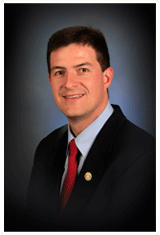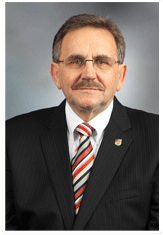JEFFERSON CITY, Mo. — Legislation that would have allowed investor-owned utilities to increase rates on consumers immediately to fund future infrastructure upgrades didn’t have the kind of year that supporters hoped for.
First, electric ISRS legislation went through a long battle in the Senate before ultimately dying. Then, a water ISRS bill died on its third reading in the Senate, the first time a bill has lost on third reading in the body since 2005. After that, gas ISRS legislation that passed both chambers was subject to a veto by Gov. Jay Nixon.

In his veto letter, Nixon said the bill failed to demonstrate a compelling reason to expand the ISRS mechanism passed in 2003 to address aging infrastructure for utilities. Nixon also cited a provision in the bill, Senate Bill 240, which would remove the incentive of utility companies to collect customer debt rather than shoulder the uncollected or “bad debt” onto normal ratepayers.
While he disagrees with Nixon’s assessment that there is no compelling reason to expand ISRS, SB240 sponsor, Sen. Brad Lager, R-Savannah, said he was unlikely to continue perusing the same kind of ISRS legislation in the future to address the infrastructure needs he called “dire and obvious.”
“If someone can articulate to me a path to getting our infrastructure upgraded, then I’m happy to come back to the table,” Lager said. “But I have no desire to keep doing what we’ve been doing thinking we’ll get a different result.”
Lager said that because the issue was large and highlighted some philosophical divides even among the Republican caucus, it couldn’t be “muscled through.” While he did not state definitively that he wouldn’t sponsor more ISRS legislation in the future, Lager emphasized that he is now focused on other paths to accomplishing the goal.
When asked whether they would continue to specifically seek ISRS expansion, Laclede Gas, a major supporter of SB240, shied away from concrete support of another ISRS bill.

“The grounds for the veto outlined in the Governor’s veto message are inaccurate at best,” director of corporate communications for The Laclede Group, Jessica Willingham said in a written statement to The Missouri Times. “Laclede would be willing to support future legislation that advances Missouri’s energy policy and is good for customers.”
Sen. Doug Libla, R-Poplar Bluff, who was one of the loudest opponents of various ISRS legislation during the session, said he would have “no problem” not having to negotiate any gas ISRS bills in the coming session.
“These big monopolies need to learn to live within their means,” Libla told The Missouri Times. “Families in the state are struggling and these companies need to do what those families do, learn to provide what you provide with what you have.”
Libla said he wasn’t flatly opposed to negotiating ISRS legislation in 2014, but that it would depend entirely “on the person bringing the bill, and the language of course,” being more flexible, and much different, than SB240.
“I’m willing to talk always, but if there is another bill just like the one that just got vetoed, I don’t see there being any changes in what the outcome is,” Libla said.
Collin Reischman was the Managing Editor for The Missouri Times, and a graduate of Webster University with a Bachelor of Arts in Journalism.




